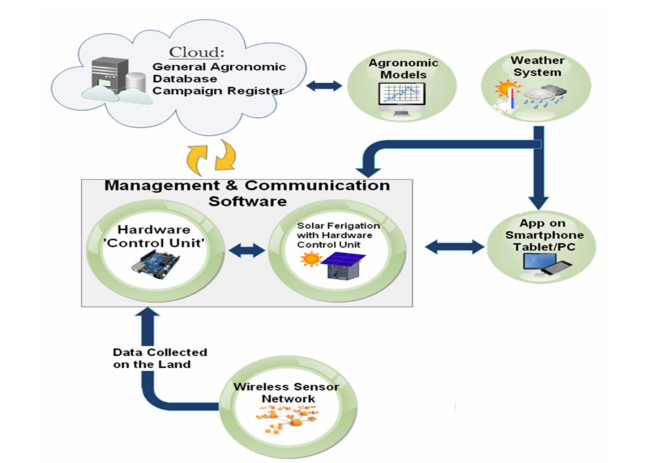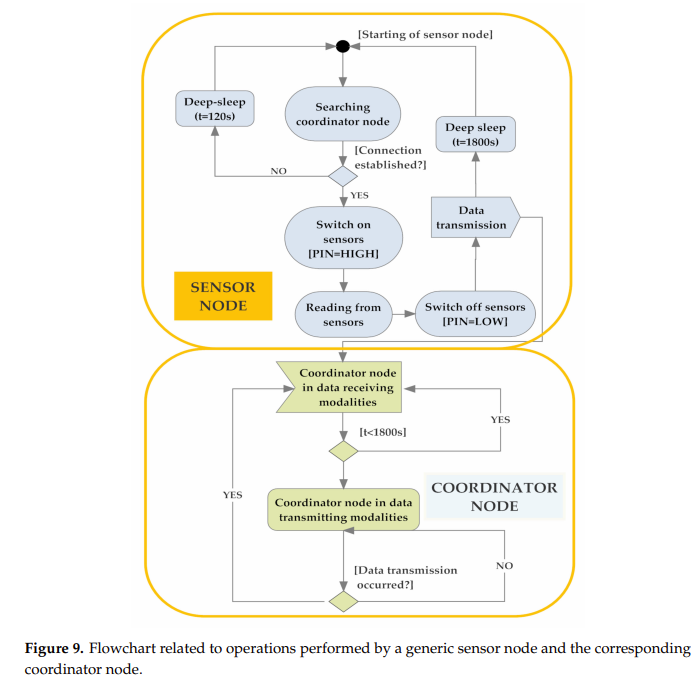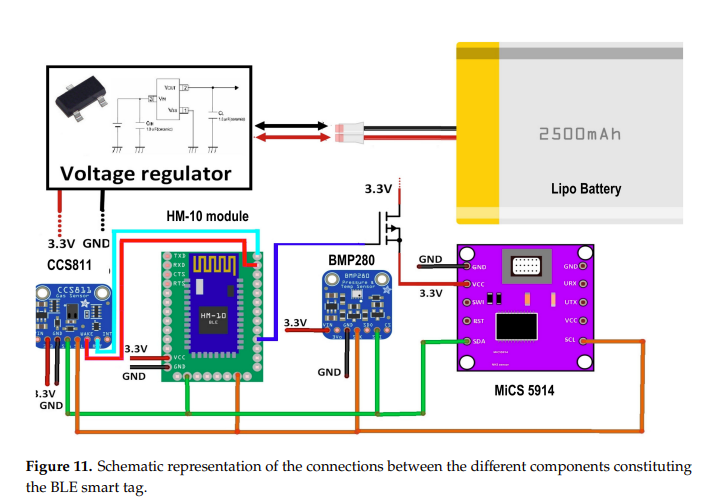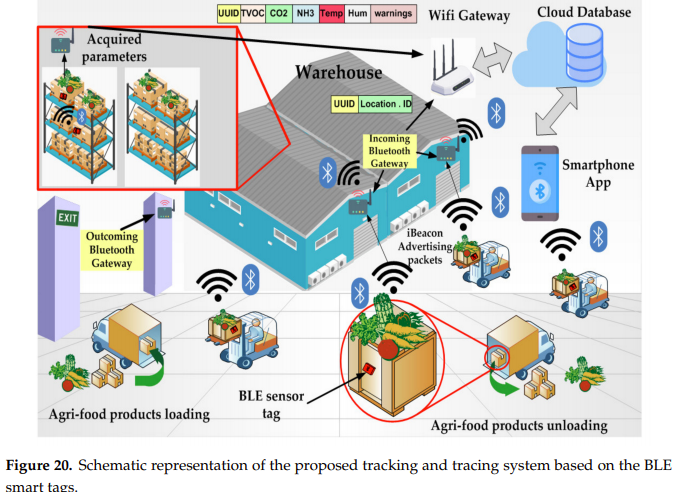There’s recent research into Development of Sensors-Based Agri-Food Traceability System Remotely Managed by a Software Platform for Optimized Farm Management.
The paper describes an IoT-based smart traceability and farm management system that calibrates irrigation and fertilisation based on crop typology, growth phase, soil and environment parameters and weather information.

The system uses a custom built Bluetooth LE sensor tag that’s fixed to containers agri-food products collected from the fields, being processed or stores. The sensor monitors gas, temperature and humidity that indicates whether the foods are spoiling over time or along the supply chain. The tag also supports traceability. A mobile application monitors the tracked information and condition of the agri-food products.

The sensor tag uses a HM-10 BLE module and CCS811 (gas) and BMP280 (temperature and humidity) sensors that were chosen to provide reliable markers of the freshness status of vegetables, meat and fish. The gas sensor measures Total Volatile Organic Compounds (TVOCs) and equivalent CO2 (eCO2) concentrations for air quality monitoring applications.

The developed system schedules irrigation and fertilisation according to the crops’ need reducing under or over watering thus minimising plants’ stress.

Smart farming allows farmers to control, in real time, the growth and harvest of cultivated crops. It allows agricultural companies to increase yields, nutritional quality and improve safety. It reduces production costs and the negative impacts on the environment for economic, environmental and social sustainability.
View Sensor Beacons
View Gateways